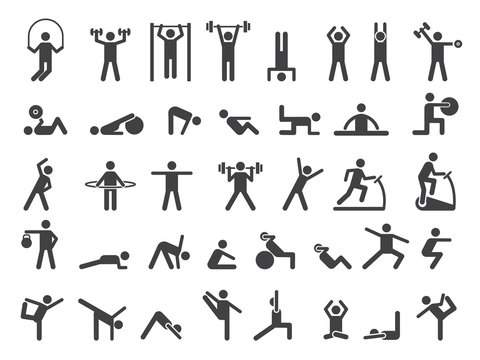Have you ever wondered why so many people swear by their gym routine? Or why fitness enthusiasts seem to have boundless energy and a positive outlook on life? The answer lies in the transformative power of regular exercise on the body and mind. By unlocking the power of the gym, you can experience a host of physical and mental benefits that can improve your overall health and wellbeing. From increased cardiovascular health and muscle strength, to reduced stress and anxiety, regular exercise has the potential to transform your body and mind in powerful ways. In this blog, we'll explore how unlocking the power of the gym through regular exercise can help you unlock your own potential for a healthier and happier life.
What is GYM?
A gym, also known as a fitness center or health club, is a facility equipped with various exercise equipment and amenities designed to help individuals improve their physical fitness and overall health. Gyms typically offer a variety of fitness classes, such as yoga, aerobics, and strength training, as well as cardio machines such as treadmills, stationary bikes, and ellipticals.
In addition to exercise equipment, many gyms also offer amenities such as locker rooms, showers, saunas, and steam rooms. Some gyms also provide personal training services, nutrition counseling, and wellness programs to help individuals achieve their health and fitness goals.
Going to the gym is a popular way for people to incorporate regular exercise into their daily routines, as gyms provide a variety of options for different fitness levels and goals. Gyms are available in many different sizes and styles, from small independent facilities to large chain franchises, and can cater to a wide range of budgets and preferences.
Types of Exercises You can do at GYM:
- Cardiovascular exercise: Cardio exercises, such as running on the treadmill, using the stationary bike, or using the elliptical machine, can help improve cardiovascular health, burn calories, and increase endurance.
- Strength training: Strength training exercises, such as lifting weights or using resistance machines, can help build muscle strength and size, increase bone density, and improve overall body composition.
- Flexibility exercises: Stretching or doing yoga can help increase flexibility, improve posture, and reduce the risk of injury.
- High-intensity interval training (HIIT): HIIT workouts involve short bursts of intense exercise followed by periods of rest, and can be a great way to burn calories and improve cardiovascular health in a shorter amount of time.
- Group fitness classes: Group fitness classes, such as dance, cycling, or aerobics classes, can be a fun and motivating way to get a full-body workout while also socializing with others.
- Mind-body exercises: Mind-body exercises, such as yoga or Pilates, can help improve flexibility, balance, and posture, while also promoting relaxation and reducing stress.
Benefits of going to GYM:
- Improved physical health: Regular exercise at the gym can help individuals of all ages maintain a healthy weight, increase muscle strength and flexibility, improve bone density, and reduce the risk of chronic diseases such as diabetes, heart disease, and certain types of cancer.
- Better mental health: Exercise has been shown to improve mood, reduce stress and anxiety, and promote better sleep, which can benefit people of all ages.
- Social benefits: Going to the gym can provide opportunities to socialize and meet new people, which can be especially beneficial for older adults who may be at risk for social isolation.
- Increased energy: Regular exercise can increase energy levels and reduce fatigue, which can benefit individuals of all ages in their daily lives.
- Improved cognitive function: Exercise has been linked to improved cognitive function and brain health, including better memory, focus, and mental clarity, which can benefit individuals of all ages.
Negative impact of doing excessive exercises at GYM:
- Increased risk of injury: Overdoing it at the gym can increase the risk of injury, such as strains, sprains, and fractures. It's important to approach exercise in a balanced way and to allow time for rest and recovery between workouts to prevent injury.
- Overtraining syndrome: Excessive exercise can also lead to overtraining syndrome, which can cause fatigue, decreased performance, and increased susceptibility to illness or injury.
- Hormonal imbalances: Intense exercise can disrupt hormonal balances in the body, leading to menstrual irregularities in women and decreased testosterone levels in men.
- Mental health impacts: Excessive exercise can also lead to negative impacts on mental health, such as increased stress, anxiety, and depression.
- Weakened immune system: Overtraining can also weaken the immune system, making it more difficult for the body to fight off illness and infection.
Is Age Matters while Joining GYM?
FAQ: Gym is more beneficial for youngers or older?
- Younger adults: Gym can be especially beneficial for younger adults who want to build muscle strength, improve cardiovascular health, and maintain a healthy weight.
- Middle-aged adults: Middle-aged adults may benefit from gym exercise to maintain muscle mass, improve bone density, and reduce the risk of chronic diseases such as heart disease and diabetes.
- Seniors: Seniors can benefit from gym exercise to improve balance, flexibility, and mobility, reduce the risk of falls, and maintain independence as they age.


0 Comments